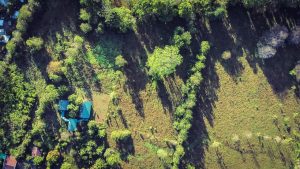CEPA Foundation: Protecting Wildlife in Costa Rica

The Osa Peninsula located in part of both Golfito and Osa counties and is one of the most biodiverse regions on the planet. This megadiversity has led the region to receive immense attention from biologists, primatologists, as well as botanical collectors. However, the economic pressures of the region as well as the limited access to education and job opportunities has led many residents to regard the trees from an instrumentalist perspective. This has had, and continues to have, a significant impact on the ecosystem of the region. The main threats to the forest result from the complicated economic situation of the region and the lack of continuous and quality environmental education.
Fundación Saimiri is based in the south of Costa Rica, in a small village called Guadalupe de la Palma in the Osa Peninsula. Guadalupe de la Palma is situated 4 kilometres from the National Parc of Corcovado, and has a population of about 300 inhabitants. The Fundación Saimiri project: “Transforming pastures and secondary young forests in Biodiverse Forests” aims not only at planting trees in depleted habitats but as well as promoting the conservation of endangered trees in the Osa Peninsula through environmental education.
Fundacion Saimiri will provide an experiential and theoretical understanding of the low-land rainforest to residents of the Osa Peninsula by teaching individuals to identify the endangered trees as well as collaborate with farm owners to plant trees in their depleted young forests. This will enable the existing generations to think in a different way about their natural resources and provide protection of the trees in future generations.
Key objectives
The Osa Peninsula is the most significant wetland ecosystem and mangrove forest in Central America and is home to 323 endemic species of plants and vertebrates.
In cooperation with the on-site organization Fundación Saimiri, CEPA Foundation supports their activities and projects which help to protect the biodiversity of the region and improve sustainability practices.
- Close collaboration with local communities to increase their productivity and awareness of environmental risks related to climate change.
- Commitment to biodiversity restoration - species selection is based on criteria of current and potential value for the rainforest ecosystem.
- Monitoring of results - Saimiri has a long-term commitment to the areas that they retain, they have been living in the community for more than 20 years.
Support from the CEPA Foundation has provided funding for the Saimiri Foundation to:
- Acquire building materials such as metal for bedding, sprinklers, roof, biodegradable bags, metal labelers, shovels, machetes, rubber boots, etc. for improvement of the tree nursery
- Contract local workers to collect the seeds of endangered trees, give maintenance, and continue planting trees
- Employ a Botanist to maintain the tree nursery
- Integrate a Geographic Information System to locate each of the trees
- Improving the conservation of biodiversity for a sustainable and positive future for nature
CEPA Foundation - Voluntarily Taking Action Since 2019:
Climate Action Pledge #3 - Compensate our emissions and beyond
Nature Positive Study Abroad
As of January 2023, CEPA started voluntarily compensating the carbon emissions and environmental impact created on-site by our faculty-led programs and semester programs. Starting in 2024, the summer intercultural leadership program will be compensated as well.
This compensation is achieved through two different ways:
- CEPA’s voluntary ecosystem restoration project in Costa Rica with the Saimiri Foundation
- Carbon Compensation through by purchasing certified Emission Reductions (CER's) from the United Nations
142 carbon positive study abroad group programs
(since January 2023)
Trees planted: 4,248
(since October 2019)
Tonnes of CO₂ offset: 2,179.50
(since October 2019)

